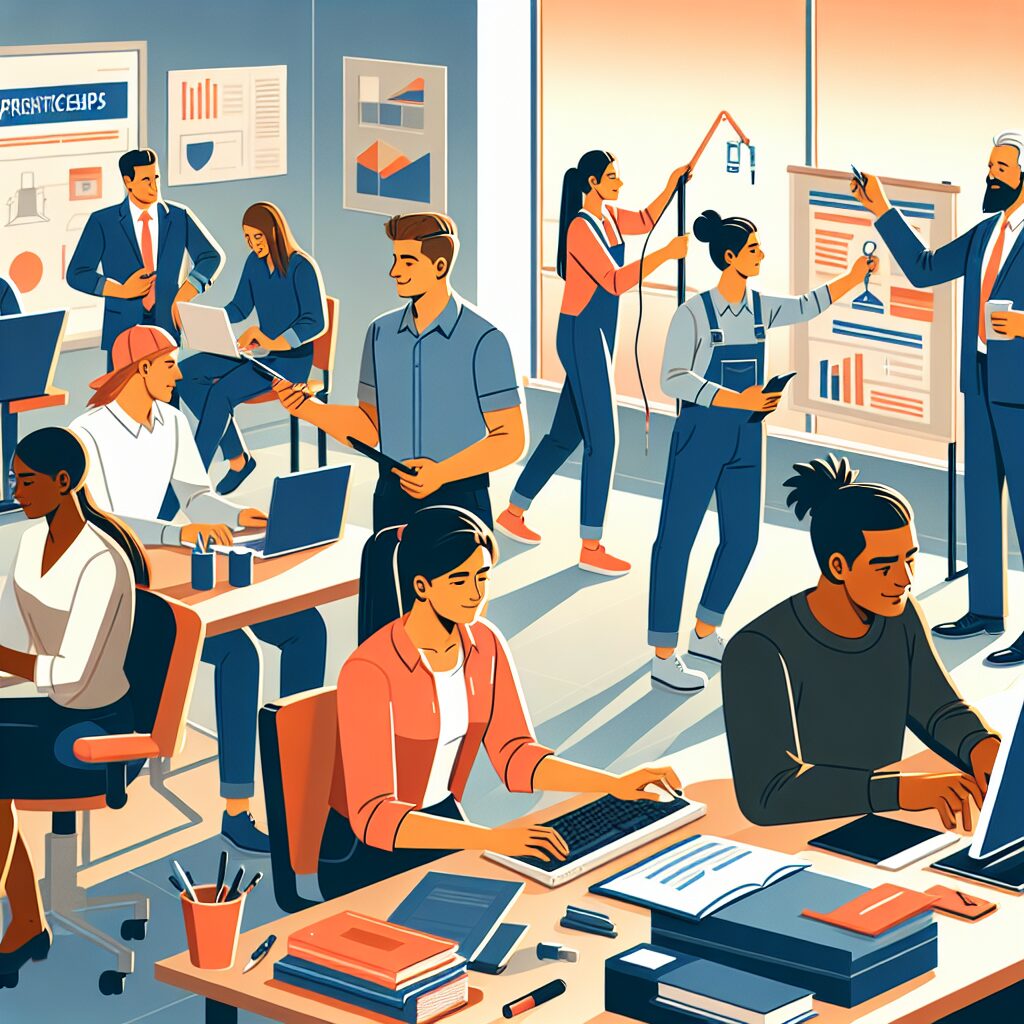
Collaborative Approaches to Address Skills Shortages in the Workforce

Unlocking Potential Through Collaboration in the Skills Landscape
This morning, over a steaming cup of coffee, I found myself engrossed in a spirited discussion with my colleagues from City Skills. It was during this gathering that I realised something crucial: collaboration is the key to unlocking our true potential in the skills landscape. If we want to break down the barriers created by current skills shortages, we need to build bridges between employers, training providers, and the government.
Why Collaboration Matters
Let’s face it, the skills shortages we encounter today aren’t just minor inconveniences—they’re significant roadblocks to growth. We’re talking about the kind of challenges that can hinder businesses from reaching their full potential. So how do we, as a collective, overcome these hurdles? The answer lies in collaboration.
It’s not just about working in silos anymore. We need a holistic approach where everyone, from businesses to educational institutions, works together. Imagine a world where employers and training providers align their goals. This synergy could revolutionise the way we address skill gaps in the workforce.
Innovative Partnership Models
During our discussion, we dove into the concept of innovative partnership models. It became clear that collaboration should be about inclusivity. We need to open the door to a diverse range of stakeholders. This includes not only employers and training providers but also community organisations, local councils, and even students themselves. Everyone has a part to play in this puzzle.
There are so many ways to make this happen. Perhaps we could look at joint programmes that combine on-the-job training with classroom learning. Or maybe even co-designed apprenticeships that cater to the specific needs of industries. The possibilities are exciting, and with the right partnerships, we can tackle skills shortages head-on.
The Importance of Sustainable Funding
Another significant point we touched on was the necessity for long-term funding. Short-term solutions might provide a quick fix, but they seldom lead to lasting change. We need commitments that will stand the test of time, allowing us to build more robust training programmes that can adapt to the ever-changing labour market.
Imagine a world where funding is not a constant worry for training providers. If we could secure sustainable investment, they could focus more on developing innovative courses that meet industry demands. This way, learners enter the workforce with the skills they need, while employers gain access to a well-prepared talent pool.
Simplifying Pathways to Education
Let’s not forget about how we can make training and apprenticeships more accessible. During our conversation, we highlighted the importance of creating clearer pathways for those wanting to enter skilled professions. The current system can often be daunting, with an overwhelming number of options and often insufficient guidance.
We need to advocate for straightforward routes into training that are easily navigable. Providing clear information and support systems can empower potential apprentices and drive engagement in vocational training. Think about how many talented individuals are currently left on the sidelines because they simply don’t know where to start!
Looking Ahead: Together We Can Reshape the Future of Work
One enlightening moment of our discussion came from a representative of the Department for Work and Pensions. They shared insights on upcoming government initiatives focused on skills development and apprenticeships. It was refreshing to hear about the potential changes on the horizon and how they align with our vision.
It’s clear: our collective efforts can reshape the future of work. And this brings us back to the question we all need to answer: how can we make collaboration a top priority in our industry? Perhaps it starts with a conversation or a small partnership. Either way, each step brings us closer to a more skilled, prepared workforce.
To wrap up, let’s take a moment to reflect. What are your thoughts on collaboration within your field? How might you reach out to build connections for the greater good? Let’s keep the conversation going—after all, we’re all in this together.
#CitySkills #Collaboration #SkillsDevelopment



